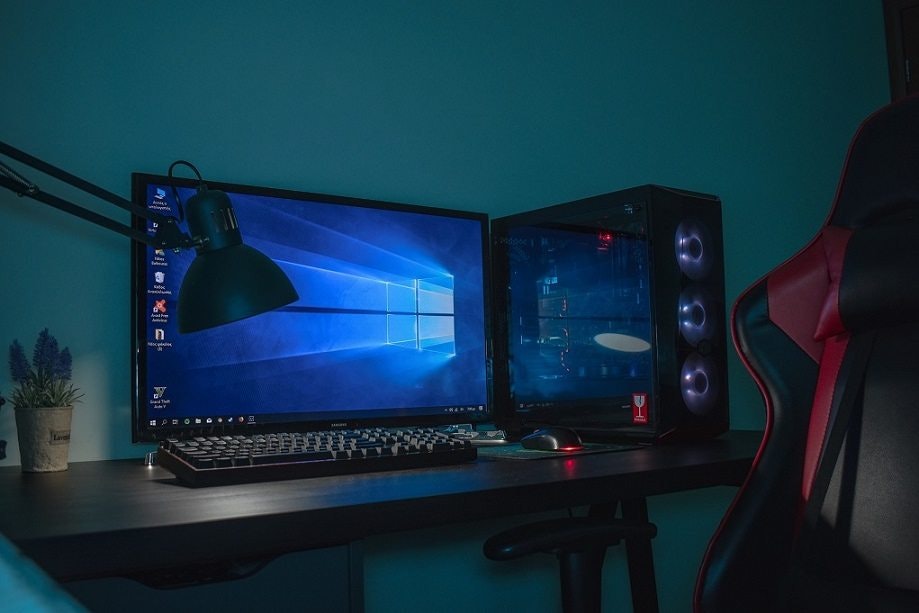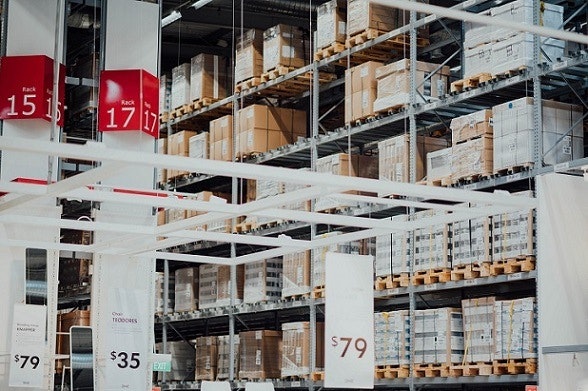How to Avoid Burnout While Running a Side Hustle
At first, ecommerce reminded Emma Reid of video games. It was addictive, exciting, competitive, and tons of fun. But then things fell apart. Her dropshipping supplier botched thousands of orders, she lost $10,000 in a month, and then the burnout set in. She joined us on Start Yours to explain what went wrong, the lessons she learned, and why she’s back in the game running another online store.
You can read more about Emma's journey on the Oberlo blog.
Start Yours is a podcast about ecommerce, dropshipping, and all things launching a business.
Join us as we meet entrepreneurs who have gone through the triumphs and headaches of running an online store, and learn how they managed to survive and thrive.
David: Whenever we get to talk with ecommerce entrepreneurs, it’s always fun to hear about their earlier side hustles before they got into their ecommerce business and Oberlo users have had all sorts of different things that they’ve been into from fixing up old bikes to currency trading and so on. Your first side hustle before you got into ecommerce business is also pretty funny and it dates back to when you were 11 years old and basically you kind of hacked this video game called Habbo Hotel. Talk a bit about what Habbo Hotel is for those of us who didn’t grow up with it and talk about how you were able to earn money online through this video way before you ever, you know, would launch an ecommerce business.
Emma: So I played a lot of video games when I was a kid. And this was one of my first online video games that I played. You could actually run your own hotel and have your rooms and try to be the best in the game. Basically, it was a social thing where you would go and chat to people and play minigames, like you would have clubs and discos and all of that but you could actually create your own club or disco if you had the in-game currency. So you would go to like EB Games or GameStop for the young Americans, you can go to GameStop and buy the gift card for the online credits and put that into the game.
David: So it was real money that would get converted into Habbo Hotel money? Okay.
Emma: Yes, real money into the game. Yeah. That’s how you like you had a club membership which was a monthly fee where you could get like the rare furniture. And if you… If they release limited edition items, you could buy that up if you’re a club member if you have the credits available and then later on when the demand was big to get these items and they were sort of rare they increased in scarcity, you could sell them for more, you can sell for more profit. So there was an online marketplace where you could buy and sell at your own rates, the market sets the rates, or you could buy from their store where they have higher inflated prices and not all of the items available.
David: The more ecommerce entrepreneurs that we get to talk to, the more convinced I am that there’s some sort of overlap between running an ecommerce business on the one hand and then a bunch of other things that don’t really have anything to do an ecommerce business. So these other things I’m talking about, I would include like online poker, for example. I think fantasy sports fall into this bucket and I would definitely include video games. And so, I think, all these things have this element of hustle, they’re really competitive, you know, and it’s situations where there’s going to be a finite number of winners and everybody’s playing by the same rules and it’s kind of, you know, a zero-sum competition in some way. As someone like yourself who’s played a lot of video games and also done lots of ecommerce business, do you think there’s anything to this idea that that video games and ecommerce kind of, I don’t know, that they tickle the same part of the brain.
Emma: Yeah for sure, a hundred percent. I think it’s definitely related. There’s definitely some overlap and I think video games did make me who I am, like the ability to get obsessed with something so much and just lose yourself in the moment, but when it’s got like a marketplace in it as well and you’re like actually making money in the game and leveling up and stuff, that transfers over to an ecommerce business because you’re doing pretty much the same thing but with real money.
David: Was it startling to go from where the stakes where whether or not you go to the next level to stakes where you know, it actually kind of matters if things don’t go well because you’re going to lose a bunch of money, was that like a big jump for you to make?
Emma: It can be pretty difficult, but at the same time, it was sort of just natural because you have that experience in video games like where something doesn’t go wrong and you can just get a do-over and go back and fight the boss again. You can just keep going and learning from your mistakes and that applies to real life as well. Even though yes, there is more at risk because it is real life by playing with real money, but it’s still, you can always try again and you can keep going and learn from your mistakes and do it better next time.
David: And so I think with video games people would often times just play into the night. I know I was guilty of this where you know, all of a sudden it’s 3 AM And you know, you thought it was maybe 10 o’clock or something, did that happen to you? Did you… Did you have this, you know time warp experience that I think all video game players have had?
Emma: Yes all the time, that’s called being in flow.
David: Cool. And you get your best work done then?
Emma: Yes. Definitely. Yeah, I’ve had times where I’ve had missed phone calls, people coming to my room telling me things and I just don’t even remember. Nothing else exists but the computer.
David: So you didn’t particularly like school when you were younger, didn’t like the pace, didn’t like the topics just kind of weren’t digging it and it was clear to you that from the time you were 15 or 16 that the traditional educational route, that that just wasn’t gonna be something that you were cut out for. And I’m curious what it felt like when you decided at this relatively young age, this thing that’s really standard and probably pretty safe, “Yeah, I’m not gonna do that.”
Was that exciting or scary? And I think a lot of people can relate to not liking school, but most of us don’t pull the trigger as teenagers and say, “I’m just… I’m gonna do something else.” What was the process like of going from, “You know, I don’t really think I like this,” to actually saying, “I’m done with this, I’m doing something else.”?
Emma: Again, it was kind of natural, I didn’t really have too much pressure and pushback to go to university or college and get this real job and stuff. Because of the way I grew up, I was taught to think a little bit differently. And because of the early introductions to video games and marketplaces and making money online, I knew there were other avenues to pursue, and I knew that you could make so much money online if you just put that obsession from video games and focusing on school into that, that I could make money online on my own terms. I never really saw myself going to college or university and working a real job. Just from a really young age, I just didn’t see that happening. So yeah, I almost quit high school, I almost didn’t go through to year 12, but I did…
David: What’s year 12 for the non-Aussie listener?
Emma: Oh, year 12, that’s the end of high school.
David: Okay, you’d be about 18 or something like that?
Emma: So that’s senior year, yeah, yeah.
David: Cool. And so you mentioned a couple of times in there pressure to get a real job, do you have a real job now?
Emma: No. Well, I mean, I guess, technically.
David: So but you’re also full-time… It’s just a full-time ecommerce business now.
Emma: Yeah, yeah, full-time. Yeah.
David: And why would you say that’s not a real job? I know what you mean, I get it, you’re talking about the conventional 9:00 to 5:00 thing, but if it doesn’t feel quite like a real job, what… How would you describe that sort of work-life? Because I think for a lot of people, it is bizarre to not have hours, to not have a boss, really, what’s that sort of work-life like?
Emma: Well, by real job I mean not being employed by someone else and having a set work schedule where you have to wake up at 7:00 in the morning and go on a commute and go work for someone else and do stuff that you’re delegated, like people would delegate to you. But when you’re working for yourself, it’s kinda like difficult in a way where you have to be your own boss and be the adult and go and get things done. But if you’re not setting a schedule for yourself, you just… You can put things off and procrastinate and then don’t make any money, and you see the negative effects from that.
David: A lot of people, they learn how to work in the working world in this, “real job,” and they do have a boss that’s kind of directing them a little bit, telling them… or directing them a lot, telling them what to do and when to do it and everything. You not having had that, do you think that there are some things that you had to learn the hard way, given that you were maybe lacking direction a little bit because you were kinda making it up on your own?
Emma: Yeah, there was definitely a lack of direction and structure. And if you don’t really know what’s going on and what’s gonna produce your results, you still have to go back and test and keep doing and keep working and keep being obsessed with it until something does breakthrough and work. So if you don’t know what you’re doing, then you’re gonna have to try a lot of things. It’s also really hard to actually control yourself and actually do the work instead of playing video games or going on holidays, because if you’re not doing that, then you’re not producing income. If you basically are your business, and you don’t have anyone that you’ve hired to do the jobs for you, then you are your business, and you have to keep working to keep producing income. If you do slack off or take an extended break, then things can go down the toilet pretty soon.
David: You said that it helps to keep being obsessed with it. And this is an interesting phrasing, I think it’s something that people in the ecommerce business space understand, that there is kinda this obsession that gets built up, and you really wanna always level up, this is like… You’re never done in this business. And so is this… Being obsessed with it, is that something that’s learned, is it something that happens over time once you see the first sales from your ecommerce business come in? How does this process of being obsessed with it, in this good way, how does that take hold?
Emma: I think because I was doing it by myself for the first time and everything was new, and I actually wasn’t following a course or any structure, I was just doing it through trial and error, it was just… My natural thing is to go and see how far I can take something, how far I can actually go. And once you get into that, the momentum builds. And if you see results, then you’re gonna wanna go and double it and just keep getting obsessed. Obviously, it’s hard if you’re struggling, and you’re not getting sales, you’re not getting results, but when that breakthrough does happen, you’re like, “Okay, this is completely validated, let’s just see where this goes. Can I do higher than this? Can I go higher than this?” And you get stuck in this flow state of momentum, where you’re just obsessed, and you can’t see yourself doing anything else.
David: So your first ecommerce business sold bracelets with fitness-related quotes attached to them, so you already had a fitness blog at the time, and so this was a good merger of this existing audience that you had cultivated with products and monetization. Did you have your eye on turning this into an ecommerce business endeavor when you started the blog, or was this going from fitness blog to fitness products only something that emerged later on?
Emma: Okay, so back then it was 2016, and I actually did have a real job, so I’ve had one job, and it was the receptionist for six months. So I was working reception, I didn’t really have a side hustle at the time, so things… You start something up, and it goes well, but then maybe it stops working, or it’s over with. So I took an extended break from it, and I decided, “Let’s try this real job thing, let’s get a job.” And I did, and I got bored of it within the first month. So I started up a blog, an affiliate blog.
David: At work?
Emma: At work, yeah, I was working. Yeah, most of my time was going to this side hustle, yeah. So I was working part-time at the time, yeah. So I started up the blog, I was writing articles, trying to sell other people’s product, I was linking them to ClickBank, the affiliate platform ClickBank, where people can get affiliate revenue. And that was doing well, I was doing it for a couple of months while working my job, I think I made about a 100 bucks. So as these things go, they snowball as you keep going, so the plan was to build that up into something that would produce as much as my job or more, which I was being paid $14 an hour back then, so it wasn’t very much.
And then with this, I was doing a bit of research online, online forums about affiliate marketing and making money. And I came across this thread where this guy was documenting his journey of arbitraging AliExpress products on his own website. So this was about 50 pages long and I spent all day just reading all there is to know and I was like, “Well, I already have my own website. Maybe I could just add a store to it and test a product with this existing audience and see if it works.” And it did. I got my first sale within 24 hours of reading that thread.
David: So you’re talking about dropshipping?
Emma: Yep, dropshipping.
David: And was dropshipping or is this business model anything you were familiar with at the time or this was a revelation for you?
Emma: No, it was completely new.
David: Okay.
Emma: I knew you could sell online products but I didn’t know that you could do it with little capital and just order from the supplier once you got a sale.
David: Okay, so then what happened with this fitness store that was kind of this add on to the website.
Emma: So I was getting a few sales organically, I had a list of maybe 50 people and I promoted that to them and that’s how I got my first sale. But after that I was commenting in Facebook groups and doing a bit of group hacking to try and get people to come to the store, try and get traffic. Back then I didn’t know anything about Facebook ads so I knew completely nothing but eventually I got enough organic sales then I was like, “Let’s try Facebook ads.” Let’s try and learn this and yeah, I got a fair few sales… 300 orders but the supplier didn’t ship any of them.
David: Okay, nightmare scenario that makes a bunch of sales but nobody gets their product.
Emma: Yep, yep. Nightmare.
David: And then I assume that was the end of that store or what happened next when the suppliers flaked out?
Emma: Yeah, that was the end of that store. I couldn’t find any other suppliers selling this product. It was sort of handmade products so they had to actually have workers assemble the jewelry and put the toms on it and all of that. So it wasn’t really mass produced. And yeah, I just couldn’t, I didn’t know what I was doing back then. It was 2016, it was my first ever store. And I just decided, you know what, let’s just refund all these customers and I’m done. I’m at a loss at the moment, I’m at a loss. Let’s try something else.
David: And the second store. If I understand correctly, you had the same problem as the first one, but just on a bigger scale. So you went from having 300 or so sales that fell through because the supplier didn’t ship the products. This happened to you again, but maybe you leveled up in such a way that the fail was a little bit more painful, talk about that.
Emma: Yeah, so history did repeat itself. But I thought I had the problem solved. But obviously, I didn’t. I trusted the supplier, had the stock and all of that, but I was scaling up during Q4 and it just became a bit of a nightmare because they didn’t have the stock and they weren’t transparent with me about that. I was actually in Bali at the time, I was scaling up my ads. I actually hit new revenue highs, like I doubled my previous day of sales while I was in Bali on holidays but…
David: So you’re living the life at this point.
Emma: Yeah, yeah, living the life, sipping Bintangs in the pool, watching my sales go up to like $8,000 a day and I was like, “Wait, how do I fulfill all of these?” I don’t have like, do they have the stock? Can I fulfill all these? And can I manually do it? Like, I wasn’t sending like CSV files or like have an agent or anything. I was going straight through AliExpress through Oberlo. And it was a bit difficult to fill them all myself.
David: So that’s sobered you up?
Emma: Yes.
David: Once you went from 8,000 to actually figuring out how to…
Emma: Yeah, I didn’t have the systems in place. I didn’t have a team to actually go in, like help me fulfill the orders and all of that.
David: And so what came of this store?
Emma: I burnt out and quit it.
David: Okay. And this is, I guess it’s worth noting that you actually did more than $500,000 in sales, I think it’s over 12 months, right?
Emma: Yep.
David: Okay. And I think a lot of people could put up with some headaches if there was a six-figure thing going on, that would make the headaches worth it, but you use the phrase burnt out, I mean, you weren’t in a spot to keep going, I guess.
Emma: Yeah, like there’s so much to do for my ecommerce business. And I was just one person, and I didn’t delegate before… I scout, I didn’t delegate before I accelerated basically. And that caused a nightmare because at the time, I just couldn’t delegate. I didn’t have the time to try and like fix it. I had to just do it all myself and keep going. And you get trapped in the hamster wheel. And like I went through like I was fun. I kept going, fulfilled all those orders, everything was going great but then the major supply issue happened where they just really couldn’t get the product out. And that was around Chinese New Year and I’d never gone through Chinese New Year before. So it’s where they shut down for like a month. And it was just major headache, hundreds of customer emails a day, trying to keep on top of all that. And also like, you know what, I’m actually losing money at this point, why not just take a break for six months and just reflect on where I wanna go? Because it was just too much of a logistical nightmare at that point.
David: Yeah, we had a story about you on the Oberlo blog, and there was a great quote where you said, “I wanted to do it all myself because it was so much fun for me but eventually problems happened and you’re so focused on fixing the problems that you can’t hire out once it’s too late.” So I guess that’s where you were that the, there were a lot of things that you could have used, hope with but it was too far gone to implement that.
Emma: Yeah, for sure. Yeah, I know better now, thankfully. So like all of these things that happen, even if it was a store that did 500,000 but I made a lot of mistakes along the way. And now I know this time, and I can 10 times that hopefully with implementing like hiring and delegation. And making sure everything is in place before you actually scale up.
David: But before I get asked it from somebody else, I wanted to ask you, of the 500K, how much did you pocket, how much did you have to refund, was there anything left from that, or was it another situation where you were in the red, even though you had a bunch of sales?
Emma: So the profit on that was $180,000. I had to refund around $10,000 or so, but it was at the end of the product cycle really, and everyone was like… I stopped selling, I turned off my ads, because I couldn’t keep up with the demand, I couldn’t sell anymore. And it was getting a little bit unprofitable as well, products run their course. And I was getting… All the refunds were coming in and all of that, and I was in the red for one of the months, I was in the red for $10,000, and I was just like, “No, no more, no more please, I’m not gonna lose all of this profit.”
David: Right. Five figures of red is a lot of red. And the product itself was what?
Emma: It was animal jewelry.
David: Animal jewelry. Okay, cool. We’ll get into products more in a minute, but I wanted to circle back to what you said about systems and having systems in place for your ecommerce business. Now that you’ve had this pretty… This face-plant, so to speak, with the big store and not having orders fulfilled, what could you have done, or what should you have done if you were going to be scaling up that big?
Emma: So first off, I should have had someone actually handling the emails in the customers spot. Because what I do, I’m basically the marketer, and I’m building an ecommerce business, I don’t wanna be the business, I don’t wanna have it 100% rely on me, everything. So a big thing that took up most of my time was replying to customers, making sure they were happy, processing refunds or shipping more orders out, as well as replying to comments on ads to get more attention and get higher conversions from the people who are interested in it, on ads. Yeah, as well as that, actually fulfilling the orders, so going in Oberlo and doing all that, fulfilling all the orders. But what I’m doing now is I’m actually working through an agent. Because once you get to a certain point, you have a lot of profit, and it’s costing a lot to employ people, or you don’t really wanna do it that way, because it seems a bit like you can do it more efficiently, at that point.
David: You mean like to do it with freelancers, for example, or…
Emma: Yeah, like freelancers and stuff. That works for some people, but I do want a little bit more transparency with my stock, because AliExpress suppliers can be a bit sketchy, and in times like Q4, you do have to have… Make sure you have the stock in hand, that’s… With my last store, I was… I didn’t really have the stock levels, I didn’t know, and that’s why that problem happened. So this time, I’m going through the agent to do that so I know 100 percent what stock I have, and it’s sort of easier for the whole process, the whole fulfillment, especially when you’re doing volume.
David: AliExpress suppliers, let me ask you, you’ve just said that AliExpress suppliers can be a bit sketchy, what… No, I’ve heard horror stories as well, I’m not challenging you on that assessment, I’m just curious what exactly you mean by that, and what are some things that people should be aware of?
Emma: Well, like I said before, my other experiences with them, they don’t necessarily always tell you how much stock they have, you can ask, and normally they’ll just say, “Yes, dear, yes, dear, we have all the stock.”
David: They call you dear?
Emma: Yes, they… That’s how they address you.
David: It’s polite.
Emma: And I say it back to them, I’m like, “Thanks dear, just tell me how much stock you have please, because I need to know if I can scale.”
David: So that’s a huge pain point, is just the not knowing how many products are available for you to sell?
Emma: Yes, yes, that’s the pain point. I had those issues with the last store, the $500,000 store, where I just didn’t have the stock. And they were more transparent than the other supplier, but this time, I really just wanted to make sure that there was that stock there.
David: Yeah, because I guess, otherwise you could be selling products that don’t exist.
Emma: Yes, yes, which is sort of what happened last time, yeah.
David: I think one of the interesting things about your story is that it answers the question of why everybody isn’t dropshipping. And this is something that we see when we talk about how you can start a store for 500 bucks, or when we talk about how you can mark up products three times or five times or whatever, we always get comments like, “If that were true, then everybody would be doing it, because you just hack the world. If you can start an ecommerce business with 500 bucks, and then have a 5x mark-up on every product, why wouldn’t everybody be doing it?” And I think your situations that you’ve experienced show that the reason not everybody does it is because it’s really hard. And not just the marketing and the product sourcing stuff, but just the intensity of it all.
And you were talking about scaling and scaling and scaling, constant orders, questions, mistakes, everything. Talk about those sort of challenges, not the stuff about optimizing your target segment on Facebook or your handling a high volume of customer questions, but the stuff that goes on that might weigh more on your psyche, as opposed to just being a logistical hurdle that you can hit reply, and then it’s done, there’s a lot of other stuff going on. What’s it like when that starts to get a little bit out of hand?
Emma: Yeah, there’s definitely a lot of pressure. And when you’re doing the customer service, if customers are angry at you or attacking you, then you are the customer service, so sometimes you take that a bit personally. And it just… It’s disheartening to get all of these refunds and complaints coming in, because you are the marketer, you’re marketing this product, you’re trying to solve someone’s problem by giving them this product, then to have them come back and say, “This never arrived,” and stuff, it is a bit sad to experience that. As well as that, it’s just… Like I was saying, the pressure, if you’re a one-man show, you haven’t delegated, and you’re running this full-blown ecommerce business, and you’ve never run a business before… Obviously, I had a little bit of experience, but never done that before, and you don’t really know what to do to solve the problems, and you don’t have a mentor or someone to guide you in it, someone that’s been there before, it can be very difficult and definitely a lot of pressure.
David: The Habbo Hotel didn’t prepare you for this…
Emma: Well, it did, but more of the marketplace stuff, how it actually works, supply and demand and a little bit of advertising as well, because there are rooms in Habbo you could… There are these listings and they would show up for everyone, but if you had a bad title, it’s like SEO for the rooms, and if you had a bad title then no one would click it, so sort of marketing in a way, that experience.
David: You hit the reset button at this point, stopped running stores, started reading books, basically had a bit of a recovery period after the crash of this second store. And one of the things that you said you learned, is that you were just doing too much solo. In this story that we have about you on the Oberlo blog, you said, “I realized I was doing way too much by myself and that I needed to actually connect with people and work on myself.” What does that mean exactly? Because I think that if you’d said, “I realized I needed to spend more time on finance or networks and outsource more work.” I think that makes sense, intuitively people know, okay hire out, outsource some bunch of stuff. But what does it mean when you talk about connecting with people and working on yourself?
Emma: I was just working so much on the ecommerce business that I just didn’t really know who I was. I needed to go back to the basics and really figure out what I actually wanted to do, what impact I wanted to have in the world, like getting all these refunds from customers and scaling something up only to have these mistakes happen, I just wanted to reflect and think about what I actually wanted to do, is there something bigger than this? And what do I enjoy doing? What are the tasks in an ecommerce business that I enjoy doing? And what would I want to delegate? And what I actually wanted to do with my life, really. So I read a lot of books, I did a lot of personal development, a lot of soul searching really, a lot of self-help books, a lot of business books, all of that.
And I tied up a few little loose ends, stuff that I wasn’t doing in my personal life, like there are a lot of things that I neglected, I neglected self-care and neglected spending time with people and a lot of things like cleaning out the shed in my house. We had 20 years worth of stuff in there, this is a big, big shed. And we were meaning to clean it out since forever, and a lot of my childhood memories were in there. So I went and made this massive bonfire and set all that on fire, like burned my childhood notes. It’s like moving on to the next chapter of my life. That’s what that whole break period was, and also to recover and become myself again.
David: And what were you recovering from, would you say? Is this like when people talk about burnout, is this exactly what you’re going through?
Emma: Yeah, if you really lose interest in what you’re doing, and you wake up. It’s like when you wake up and go to work and you dread your job. If you start dreading it and you start feeling like, “I can’t do this anymore, and this just too much work to do,” sometimes that is burnout, that is a sign of burnout. If you did hire people and things were delegated and you were doing the things that you enjoyed, then you don’t burnout as much, as well as if you’re doing something that’s not really your passion, you’re not really passionate about. I wasn’t really passionate about the product, and what I was selling, so it didn’t have that meaning for me, and that’s why I burnout, I think. Maybe it was a little bit of self-sabotage as well. When you get to a certain stage of success, sometimes you’re like, “Do I deserve to be this successful?” Or, “Do I deserve to make all this money?” Is what I’m doing helping? But yeah, it was helping, the customers were enjoying the product, but then there were a lot of refunds, so it wasn’t helping at that point. So yeah, I just needed to move on and reflect.
David: It’s interesting to hear you talk about self-maintenance or just the things that you should have been doing, that you didn’t. Do you think it’s, in some ways, more challenging to have these habits ingrained into your routine if you have such a unique work set up where you don’t have weekends off maybe? You might be working seven days a week or you don’t have the… Like we were talking about earlier, the more conventional structures is it… Do you think it’s unique to this kind of ecommerce business game, or is this just something that everybody, no matter what they’re doing that they need to be taken care of?
Emma: Yeah, for sure, everyone can experience burnout even if you’re working a regular job, things get repetitive and stale, and if you’re not doing different things every day that’s a new experience, you do get into this stage of, “What am I really doing here? My life is not exciting and stuff.” Obviously, mine was exciting, I was scaling up the store, but then the bad things started happening and that’s like, it is a new thing, but it’s a bad thing and you don’t want that.
David: So you took time off and you are now back into your ecommerce business. So I guess, when you did this soul searching, you realized, “Okay, this isn’t all bad.” What’s different this time around?
Emma: So this time I really like the product I’m selling and I want to actually develop this into a real brand and see how far I can take that. With the product before I wasn’t really thinking long-term, can I actually build this into a really profitable sustainable long-term brand. But this product that I’m working on now, yeah, I think I can, and I can transfer that from dropshipping to something better, as well as that I built an audience around myself, I started sharing my story and connecting with people, and that sort of motivated me to get back into it and see where I can really take this thing.
David: Without giving away too much, what is the product? Or what is the general ballpark of the product?
Emma: The niche is stationary and it’s…
David: Stationary, okay.
Emma: Yeah, it’s something my mom ordered organically off AliExpress. So this is… It was a total coincidence, I wasn’t really planning on starting up a new ecommerce business but I was like, “You know what, I love this product, this is a cool idea.” My mom was the target audience, like the audience research.
David: So you understand the target audience?
Emma: Yes, I understand why people buy this product. Let’s see what I can do with this and test it. And it worked when I tested it, so I’ve just kept going with it.
David: I know that communicating with other entrepreneurs or people who are thinking about entrepreneurship, but that’s something you embrace, you have an Instagram account @RealEmmaReid I believe, yeah. Where people reach out to you and you kind of swap ideas or advice or whatever about entrepreneurship, what are some of the things? As… You’ve talked about sharing your story. So I think people are probably reaching out to you with their stories. What are some things that you hear consistently that people are perhaps struggling with?
Emma: Well, people all the time, like mentioned that it’s really expensive to get started with dropshipping, like, they just don’t have the money or they don’t have the time. And that’s all bullshit. To be honest. I started with basically $10 and I bootstrapped my way there. I learned everything through trial and error and just had that mindset of it’s gonna work because you can learn anything you put your mind to, and you can be successful if you just put in the work and you just keep going.
David: Does that advice resonate? Or they do they think that you’re just BSing them?
Emma: No, no, it resonates with them. I actually wrote like a blog post on how to get started for such a little money. Like I don’t have a dropshipping course or anything at the moment, but I just wanted people to know, this is where I came from, this is how I got started. And that they can do the same thing themselves. And so I put out like step-by-step instructions and how they would actually do it. Now I’ve gotten a lot of positive feedback from that it’s actually inspired people to actually go and start a dropshipping ecommerce business because they can do it with no money as long as they just put in the time and effort. So uh, yeah, a lot of positive feedback from people. A lot of people just long messages saying, like, you just changed my entire perspective on this, like, I really can do this. I can start with nothing and go as long as I like, keep reinvesting the money back in and making sales organically until I start the ads. Like, it’s basically telling people how to get that initial investment to start running the ads.
David: All right, a few project-related things I want to hit on before I let you go. So first off, I wanna ask you about jewelry. This is a category that you’ve had success with before. I know you’ve said that it’s a good one, especially for dropshipping. What is it about jewelry that makes it a category or niche worth exploring?
Emma: So it wasn’t necessarily that it was jewelry that I was selling, it was someone’s favorite animal but on jewelry, so that was the niche. It wasn’t jewelry. The niche wasn’t jewelry, it was animals. So someone’s favorite animal like their pet or favorite animal, whatever. It was that. So jewelry is good. It’s a good product but if you don’t have like, a passionate audience around the product, then it can be hard to sell. Like I say to all these people going out and selling like watches or general jewelry. That’s not what I was selling. I was selling something that already had like a large following and people were loving this animal and they wanted their favorite one on like a bracelet or a necklace or a ring. So yeah, definitely it’s about the audience. Not really about the product, like the audience product match with the angle and the offer.
David: And so the target group that would be into animals. Is this what you call a niche community?
Emma: Yeah. Yeah.
David: Okay.
Emma: Well, it’s a fairly large niche community but like because it’s animals but there’s definitely a lot more like smaller ones that you can still make a lot of money from.
David: Cool. Okay, plus one product. What’s a plus one product and why should people think about it in their stores.
Emma: A plus one product is where you take one product and make a whole store around it. But you have upsells and related products to sell them as well.
David: So if we’re taking animal jewelry for example, as a case study here. What would the plus one angle be if that’s your core thing? What are you gonna build out around it?
Emma: So let’s say you have a necklace or something. You will run the Facebook ad to that necklace and what it’s all about. And then in the cart, you would upsell them like the bracelet or the matching ring to boost sales. And then after the sale, you can upsell them like t-shirts or anything else related to that animal because they clearly like love the animal and they want the product to do with the animal. Maybe they want more of it or upsell them as gifts, like, do you want to give this to someone, like we have a “buy three, get one free” deal where you can like gift them like, a gift pack.
So it’s really about that and making more money off the one person. But you can do the same thing with like a niche store, like where you have all the related products at the bottom and stuff. But I find that making one store completely around the product, it allows you to really resonate with that audience more and do like the branding and the copywriting really about that specific person. So the whole store is to do that. And then you upsell the products later, instead of trying to like all of this is distractions, like clicking off and looking at the other products, just get them into the funnel, get them to buy and go from there.
David: And finally, what are some non-paid marketing channels that you mentioned that you help people get started if they only have 10 bucks or whatever? What are some of the ways that you recommend they approach that when there is no ad budget?
Emma: I did a bit of an experiment with my recent store where, I was just gonna get started, I wasn’t gonna throw a bunch of money at it, I was gonna go back to the basics, do what I’ve always done, try to get sales organically. And the way I did that and started drumming up attention in traffic was commenting on Instagram. So I made an Instagram page for my store, I posted a couple of pictures to get it started, started posting on Instagram stories. And then, I went and reached out to the niche, the community was on Instagram, like through the hashtags and clicking related tags and trying to find who was actually going to buy the product. And then I would comment and interact with them and ask them questions, get that going.
And I saw that they would come and buy the product from that, from that interaction. If you’re interacting as a real human, and you’re being relatable to the person, you’re trying to understand them, what their needs are, if they like the product and all that if it’s gonna solve a problem for them, then they are probably going to go and buy, you probably gonna get a traffic. So I was doing that 100 times a day and I tell everyone to just reach out to your audience 100 times a day on Instagram, like comments, not just liking and follow for follow, actual genuine comments and just be a human. Don’t act like a robot. Don’t act like you’re spamming and you will get sales and build a community.
On top of that, it started naturally happening that people wanted to become an ambassador for this store. They wanted the product for a discount and in exchange for promoting it to their followers. So, accounts started reaching out. And I decided, let’s try this ambassador program thing because I’ve heard lots of people doing influencer marketing and ambassador programs and all of that. But I decided, let’s give this a try and let’s try to actually get a lot of sales through this. Let’s see if this is scalable. Because at this point I still wasn’t spending money on ads. I was still trying to build it up organically, test the product that way, like I’d always really done, but just not on Instagram. Yes, I signed them up with the ambassador program, gave them a personalized code for 20 percent off, so all of their friends and family and followers could get 20 percent off and then if they used that code then the ambassador would be paid 20 percent commission. So I would lose about 40 percent of the product price.
But since my margins were good, I would still make money and the ambassadors were actually some of my first profitable sales because I would give them their own personalized code that they could use for 40 percent off to order the product themselves. So I would DM all these people saying, “Do you wanna be an ambassador for my store?” And if they said yes and they were interested in the product, because I would target people that were probably going to buy the product anyway, they would actually buy it. They would buy the product from me and I would make money off them. Not of the people that they refer to the store. Yeah, so the initial sales were from them.
So there are plenty of ways to get sales organically, you can… I don’t think it’s very good to do right now, but back in 2016, as I was saying, I’d posted in Facebook groups about the products or pretended that I was someone who just bought it and all those stinky ways. And you know you can try to rank on Google and posting forums and answer comments on blog posts and stuff. There are just so many ways to get sales without ads and then build up that capital to spend on ads once you know the audience.
David: Right, Emma, one more question for you then I’ll let you get out of here. And I’m curious what is something or what are some things that you wish you knew when you started dropshipping that you didn’t, but that you do know now? So, if there’s anybody out there who’s just getting their ecommerce business off the ground, or if they’re just thinking about it, what’s some wisdom that you would give to them that you didn’t have when you were taking your first steps?
Emma: Just test everything, because you never know what’s going to actually work until you test it. You can look at all of these theories and what everyone else is doing, but what works for someone else’s ecommerce business might not necessarily work for you. So just to keep testing and finding out what is working and once you’ve got something that works, put your full focus into that and keep repeating that action because that’s how you actually progress further. So don’t be afraid to test things, don’t be afraid to fail, and actually lose a bit of money or have bad experiences. So, bad supplier experiences, bad scaling experiences, just keep going and don’t give up on trying, until you actually have it working.
You can do anything you set your mind to, really. And I just wish I’d had the confidence to do that with my first store. Obviously, my whole life I’ve grown up with that sort of mindset, but just actually knowing… Yes, you can do this, you can set your mind to it, and learn the thing and put in the effort, to get those results. So figure out what you actually have to do every day to get the end result and you will succeed. You will get the end result if you just don’t give up.
David: Right Emma, thank you so much for taking the time to chat.
Emma: No problem, good to be here.











